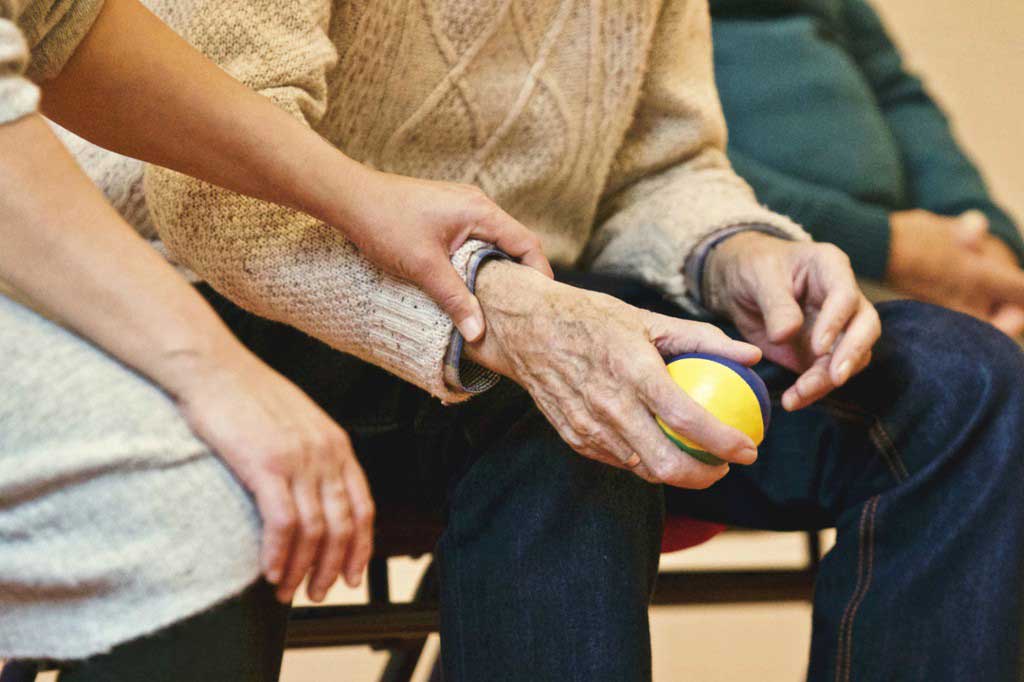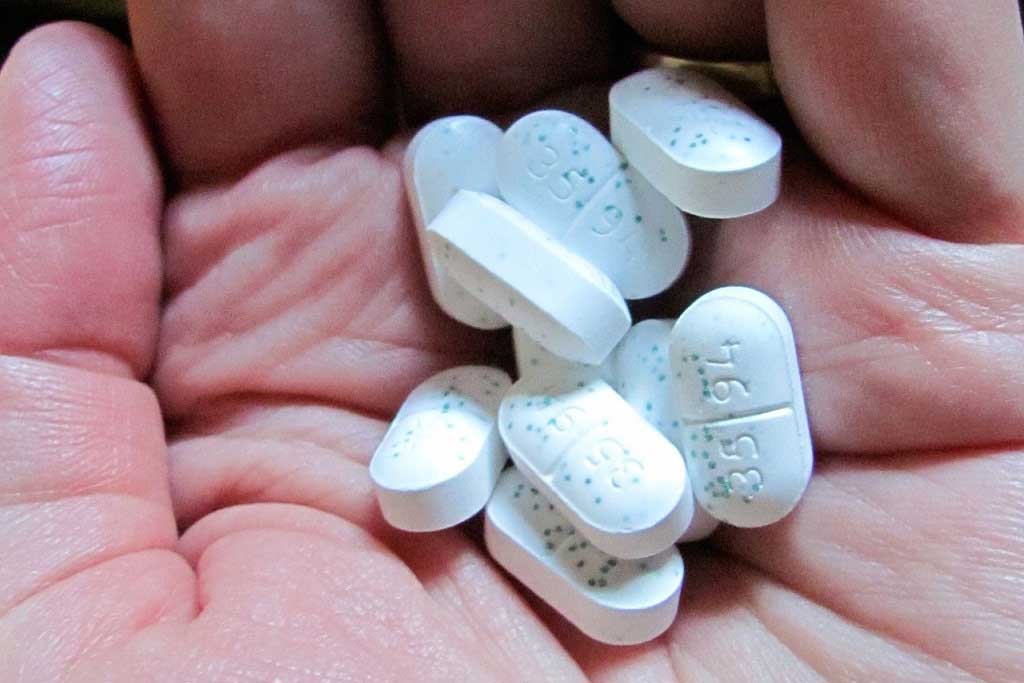Risk of aspirin-related bleeding is higher in the over-75s
Older people
"People over 75 taking daily aspirin after a stroke or heart attack are at higher risk of major – and sometimes fatal – stomach bleeds than previously thought," BBC News reports. Aspirin can help thin the blood, so it is…
"People over 75 taking daily aspirin after a stroke or heart attack are at higher risk of major – and sometimes fatal – stomach bleeds than previously thought," BBC News reports.
Aspirin can help thin the blood, so it is often given to people thought to be at risk of blood clots, which could trigger a heart attack or stroke. A potential downside is that it can trigger bleeding in the digestive system or brain.
The study involved around 3,000 adults from Oxford who were prescribed aspirin due to previous heart attack or stroke. Researchers followed these patients for up to 10 years to see how many of them were admitted to hospital with bleeds.
They found that for under-75s the annual risk of bleeding is around 1%. However adults over the age of 75 have three times the risk of a major bleed compared with younger adults, particularly bleeds of the stomach and upper digestive tract.
The researchers estimate that routinely prescribing proton pump inhibitor (PPIs) could drastically reduce these risks in older adults. PPIs are drugs that help protect the lining of the stomach and so reduce the risk of a bleed.
Current guidelines do not carry a recommendation for the routine use of PPIs in over-75s, but this could change.
People should continue to take aspirin as prescribed by their health practitioner, as not doing so may increase the risk of a blood clot leading to a heart attack or stroke.
Where did the story come from?
The Oxford Vascular Study was carried out by researchers from the University of Oxford and funded by the Wellcome Trust, Wolfson Foundation, British Heart Foundation, Dunhill Medical Trust, National Institute of Health Research (NIHR), and the NIHR Oxford Biomedical Research Centre.
The study was published in the peer-reviewed medical journal The Lancet on an open access basis so it is free to read online.
The UK media's coverage of the study was broadly accurate, with most news sources making clear that it would be unwise to stop taking aspirin if it had been prescribed without first speaking to a doctor.
What kind of research was this?
This was a population-based cohort study which aimed to assess the bleeding risk for people taking aspirin for the secondary prevention of cardiovascular events. Secondary prevention means that people have already had a stroke or heart attack and are taking aspirin to try and prevent them having another.
Aspirin is a long established effective treatment to prevent blood clots. The authors say that up to two-thirds of adults over 75 take daily aspirin (or similar drugs). However, this anti-clotting effect is known to increase risk of bleeds, particularly bleeding in the digestive tract.
Drugs called proton pump inhibitors (PPIs) can considerably reduce the risk of digestive bleeding in people taking regular aspirin. However, they are not routinely prescribed because of concerns over side effects such as nausea and constipation. Current clinical guidelines make no recommendations about their use.
This study aimed to assess bleeding risk in people taking aspirin for secondary prevention, and look at the effect PPIs could have in reducing this risk.
What did the research involve?
This Oxford Vascular Study included 3,166 patients (half aged over 75) from across nine GP surgeries in Oxford who had their first heart attack or stroke between 2002 and 2012 and were treated with aspirin (or a similar drug, but excluding anti-clotting drugs like warfarin).
A quarter of patients were prescribed stomach protection such as PPIs, though this increased to a third after one year of being treated with aspirin.
Researchers gathered information on baseline risk factors for bleeding, such as history of stomach ulcers, cancer, liver or kidney disease and excess alcohol use.
Patients were followed up with clinic visits six months, one year, five years and 10 years after they first had a heart attack or stroke. These visits documented further cardiovascular events and bleeding events. Bleeding episodes were also identified through hospital admissions records.
All deaths and the cause of death during follow-up period were identified from death certificates.
Bleeding was classified as being in the brain, upper or lower digestive tract, genitourinary system or other. Medical criteria were used to define bleeding events as non-major, major, life-threatening or fatal. Researchers also documented whether the bleed resulted in a change of functional independence or disability.
What were the basic results?
405 bleeding events required medical attention during follow-up, 187 of which were major bleeds, 40% of bleeds were in the upper digestive tract. The average annual risk of bleeding was 3.36% (95% confidence interval [CI] 3.04 to 3.70) and 1.46% (95% CI 1.26 to 1.68) for major bleeds.
Major bleeding
Non-major bleeding was not linked with age but the risk of major bleed was higher in older adults. People under 75 had a 1.1% annual risk of a major bleed increasing to a 4.1% annual risk for those aged 85 or older.
People over the age of 75 had triple the risk of a major bleed compared with younger adults (hazard ratio [HR] 3.10, 95% CI 2.27 to 4.24) and four times the risk of a major upper digestive tract bleed (HR 4.13, 95% CI 2.60 to 6.57).
Older adults also had poorer outcomes after a bleed than adults under 75. Of people surviving a bleed outside of the brain, only 3% of those under 75 were left with increased disability compared with 25% of those over 75.
The risk of disabling or fatal bleeding of the upper digestive tract was 10 times higher for over-75s compared with younger adults (HR 10.26, 95% CI 4.37 to 24.13).
Links with age were independent of gender, vascular risk factors or past history of stomach ulcer.
There were also 697 cardiovascular events (such as heart attacks and strokes) during follow-up (208 fatal). The risk ratio of bleeds to the number of cardiovascular events increased with increasing age.
Effects of proton pump inhibitors
A previous review estimated that PPIs reduce the risk of upper digestive bleeds by 74%. The researchers estimate that the benefit of prescribing PPIs greatly increases after the age of 75.
The number of people you would need to treat with PPIs to prevent one major upper digestive bleed over five years was estimated at:
- 80 patients under 65 years
- 75 patients aged 65–74 years
- 23 patients aged 75–84 years
- 21 patients aged 85 or older
When looking at the prevention of disabling or fatal upper digestive bleeds specifically, the number needed to treat with PPIs fell dramatically from 338 for under-65s, to 25 for patients aged over 85.
How did the researchers interpret the results?
The researchers conclude: "In patients receiving aspirin … without routine PPI use, the long-term risk of major bleeding is higher and more sustained in older patients … than in the younger patients in previous trials, with a substantial risk of disabling or fatal upper gastrointestinal bleeding."
They say that: "Given that half of the major bleeds in patients aged 75 years or older were upper gastrointestinal, the estimated [number needed to treat] for routine PPI use to prevent such bleeds is low, and co-prescription should be encouraged."
Conclusion
This valuable cohort study helps to quantify the extent of bleeding risk in people taking aspirin for secondary prevention of cardiovascular disease.
Aspirin is well known to carry bleeding risk – particularly in older adults – but this study suggests the risk may be higher than previously thought. The researchers say that for adults under the age of 75, the annual bleeding risk at around 1% is similar to that suggested by previous trials, as is the ratio of bleeds to the number of cardiovascular events. However, this risk increases for older adults, especially for major bleeds of the stomach and upper digestive tract.
This doesn't mean that aspirin isn't beneficial for adults – the number of cardiovascular events would probably be much greater if people weren't taking aspirin at all. However, it does suggest, as the authors say, a need to routinely co-prescribe stomach protection such as PPIs for those at greatest risk. This is a view that has been supported by several experts who have reacted to the findings.
There are some points to note:
- The findings only apply to people taking regular aspirin for secondary prevention of cardiovascular events. Though the risks may be similar, they cannot be applied to people taking aspirin for primary prevention (that is people with risk factors for cardiovascular disease but who have not yet had an event such as a stroke or heart attack), or to people using aspirin for brief periods for example to treat pain or fever.
- It's likely that the risks from this large sample in Oxford would apply to people nationwide but we don't know this for sure.
- The data only considers bleeds needing medical attention and does not include minor bleeds, such as bruising.
- The size of risk estimates may not be entirely accurate, as suggested by some of the wider confidence intervals.
- This cohort includes long-term data from a large number of patients and as such is the best sort of data you can get on treatment side effects. However, it is still observational.
It's likely that the findings of this important research will be considered when national clinical guidelines are updated. But it remains to be seen whether there will be a change in recommendations to routinely prescribe stomach protection to anyone who has been prescribed aspirin for the secondary prevention of cardiovascular events.
Doctors will always consider the risks and benefits of prescribing a treatment to a person on an individual basis. People should continue to take aspirin as prescribed by their doctor as not doing so may increase the risk of serious vascular events, such as a heart attack or stroke.
Signs of a serious bleed in the digestive system include vomiting blood. Bleeding in the brain can cause a severe headache, vision problems, stroke symptoms, such as slurred speech and weakness on one side of the body.
Call 999 for an ambulance if you suspect symptoms of bleeding in your stomach or brain.






 Subscribe
Subscribe Ask the doctor
Ask the doctor Rate this article
Rate this article Find products
Find products








